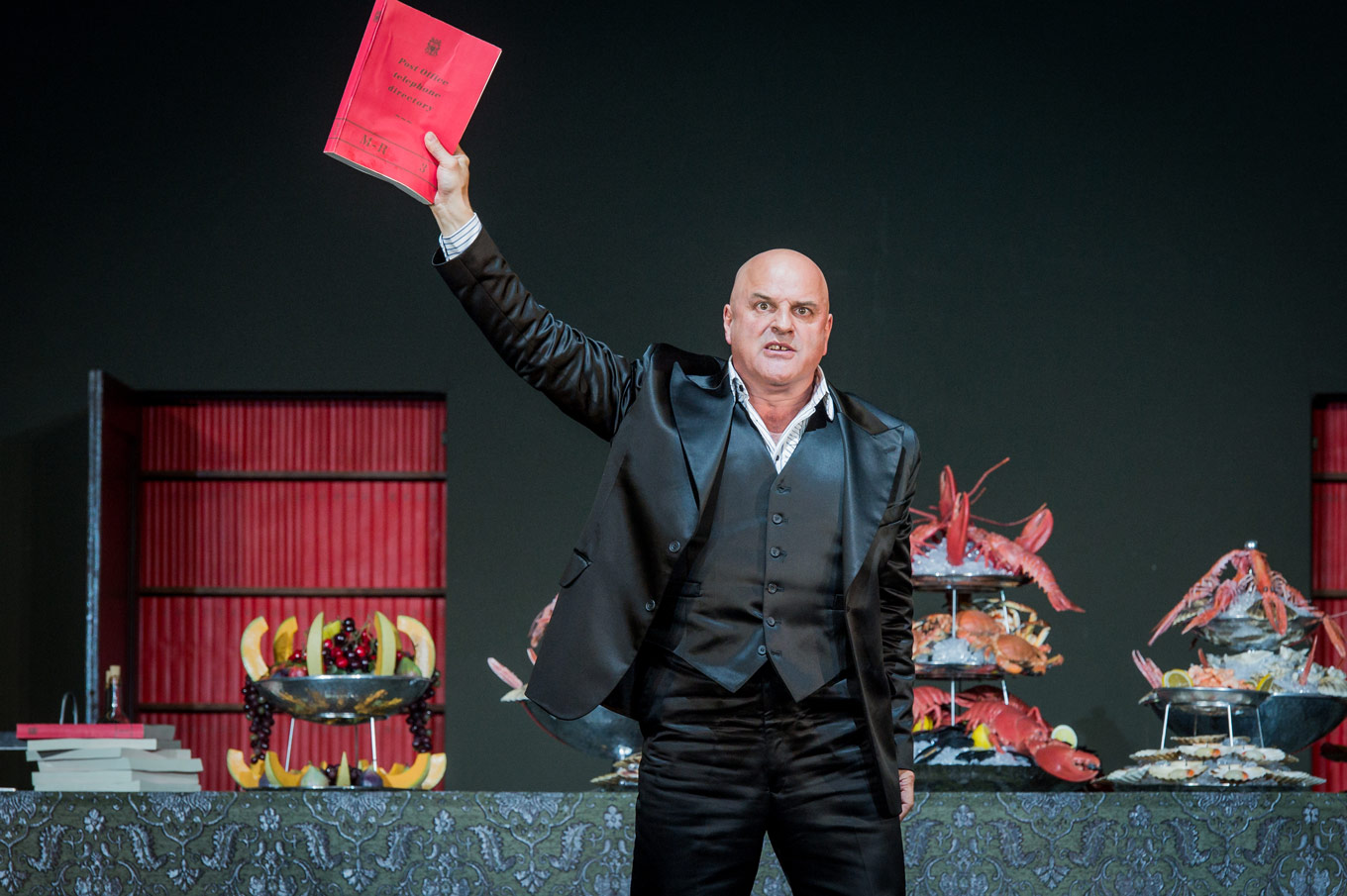
In review: Don Giovanni at ENO
ReviewMozart’s Don Giovanni is an opera that attracts, and puzzles; directors have deemed it “flawed,” and at their higher moments of stress, “impossible to direct.” That last one may be hyperbole, but just like the man himself, Giovanni comes with challenges.
So, it was a real moment of excitement to settle into the first minutes of Richard Jones’s new production at English National Opera. His is a production that ingeniously straddles the line between the symbolic and the real; the characters are at once archetypes - the virgin, the scorned, the doting boyfriend - and specific people.
“How do you play Don Giovanni?” Asked Christopher Purves in an interview about singing the title role. “You just don’t - other people do it for you.”

That angle seemed to be at the root of the large and small of this production. On the one hand, Jones stripped away all the unnecessary details of Giovanni’s encounters with women; his seductions were distilled into an overture tableau, with nothing but a hall of closed doors, a neutral-postured Giovanni, and each time a woman walks into the Don’s cloud of pheromones, an on-the-ready Leporello opens the door. Elsewhere, Jones was inventive and thrillingly contemporary about solving tricky corners; Donna Anna’s accusations of rape became more sensitive - and more secretive - when knife play and BDSM are in the mix.
Christopher Purves was a Don Giovanni who was attractive - in the fullest sense of the word - even from the balconies of the Coliseum. He stood still, confident that he was more than enough for any woman; it left him with the real tools of a seducer, which are the eyes. That calm stillness allowed the people around him to project onto Giovanni any sort of man they want. Purves’s Giovanni was a man who had extraordinary control over his outbursts, which were animalistic and dangerous; he let them out only around Leporello (and once, in a moment of frustration, at Masetto). Hidden in the beauty of his bass-baritone, his voice had pleasing grit, like a mix between hunger and not enough sleep, but with a laser-like focus to his desires.
Caitlyn Lynch, in her ENO debut, was a pitiful Donna Anna, yet for more interesting reasons than we usually get. She had a beautiful sorrow and desperation in her sound, which was somewhere between girlish and wailing; she suffers trauma that’s plain to see, but her real burdens are secrets, making her resistance to Don Ottavio more tragic. Allan Clayton was a stunning Ottavio, both in voice and as an actor. We’re getting used to hearing what can only be described as “perfection” in Clayton’s singing, and he was a sympathetic partner to Anna, kind-hearted instead of clingy.
Mary Bevan and Nicholas Crawley were energetic and at odds as Zerlina and Masetto. It was clear that their relationship was not on equal ground from the start, letting Zerlina find a much-craved outlet in Giovanni. Bevan had a young lightness in her warm sound, and Crawley’s youth was in his impulsive, almost violent singing. We never quite saw Masetto and Zerlina solve their marital spats, a choice that paves the way for more conflict.
Christine Rice was a heartfelt Donna Elvira. Jones seemed to let the character speak for herself, without infusing anything new for her as he did with Anna and Zerlina. Her arc seemed more futile than usual, made even more tragic by Rice’s excellent singing. Jones seemed to hit on something in Elvira’s constant need for Giovanni’s attention and penance: it really is about her, not him.
Clive Bayley was a curious character as Leporello. At the right times, he was funny, and he was reasonable. There was pride in his work for Giovanni, at least in the first act, and that loyalty was what became his end. In the final scene with the Commendatore - sung exceptionally by James Creswell - Jones used Leporello to tell perhaps the truest moral to this story: not only will there always be men like Don Giovanni (and women drawn to him), but these men don’t always pay for their bad deeds.
This Don Giovanni is not to be missed. It’s a truly exciting production, one that digs bluntly to the root of these characters, and that acknowledges the cyclical, endless reiterations of this story in everyday life.
Nine performances of Don Giovanni remain, until October 26 at the London Coliseum. Click here.


Comments